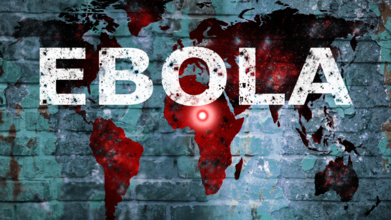- Health Conditions A-Z
- Health & Wellness
- Nutrition
- Fitness
- Health News
- Ayurveda
- Videos
- Medicine A-Z
- Parenting
- Web Stories
Lethal Fungus Is Spreading Across Many US States, Why Is It Concerning?

Credits: Canva
A dangerous airborne fungus that has the potential to rot human tissue from the inside is spreading at a considerably increasing rate across the United States. It has prompted concerns among the medical professionals and public health authorities. Aspergillus fumigatus. This is said to be the culprit behind this surge and poses a risk to especially those whose immune system had been compromised. The cases are becoming harder to treat due to widespread drug resistance and climate-linked proliferation.
The World Health Organization (WHO) has classified Aspergillus fumigatus as a “critical priority” due to its high mortality rate and growing resistance to existing treatments.
Silent Invader
It is called a silent invader for a reason. Once you inhale, the fungus can cause aspergillosis. This is a serious lung infection. The spores are microscopic, which mean hat people can breathe them in unknowingly. For patients who are already vulnerable medically, for instance, those battling cancer, asthma, HIV or recovering from organ transplants, the infection can lead to chronic lung disease, systemic organ failure, or even death. If invasive, it can also spread to your brain, hear, and kidneys.
Despite its potentially fatal consequences, aspergillosis is not classified as a reportable disease in the United States. This means infections are not systematically tracked, leaving health officials with limited data and making it harder to trace or contain outbreaks.
Infections On The Rise
Between 2000 to 2013, hospitalizations have increased in the case of invasive aspergillosis in the US. The rate is reported by a 3% increased, annually. In 2014, the infection led to 15,000 hospital stays, with a cost up to $1.2 billion.
As the US News notes, postmortem examinations in intensive care units suggest that aspergillosis is among the top four infections most likely to be fatal.
While about 400,000 Americans may be living with chronic pulmonary aspergillosis — the long-term form of the disease — invasive cases, though less frequent, are significantly deadlier. Survival rates drop sharply: just 59% of organ transplant patients and only 25% of stem cell transplant patients live beyond a year after infection.
What Is Causing Its Spread?
The fungus thrives in hot, damp, and humid environment. They can also endure up to 120 degree Fahrenheit. This is especially true in compost or agricultural waste. States like Florida, Texas, Georgia, Louisiana, and California — with their humid climates and farming activity — are seeing some of the highest exposure levels. Cities such as New York, Houston, and Los Angeles are also at risk due to overcrowding, aging buildings, and limited ventilation.
According to a University of Manchester study, if fossil fuel use continues at current levels, Aspergillus fumigatus could expand its range by over 75% by 2100 — putting millions more at risk across the southern US.
What is making it even more difficult to control is the increasing drug resistance. Azole drugs — commonly used to treat human fungal infections — are also applied to protect crops. This dual-use, experts say, may be fueling cross-environmental resistance, with drug-resistant spores jumping from soil to humans.
A study published in Applied and Environmental Microbiology found resistant fungal strains in agricultural soil across at least seven US states. Some strains are resistant to multiple standard antifungals, making treatment increasingly difficult.
WHO has also urged pharmaceutical companies to invest in new antifungals, including children in drug trials, and enhance diagnostic and treatment protocols globally.
Preventive Measures
As of now, doctors recommend to avoid contact with soil, mold, and gardening. It is important to wear protective masks when in dusty areas, and ensure good air filtration at home.
US Health Officials To Examine Covid Vaccine Effects In Pregnant Women And Kids

Credits: Canva
Federal health officials are taking a closer look at the safety of COVID-19 vaccines in pregnant women and children, while also weighing updates to recommendations for older adults.
According to U.S. News, the Food and Drug Administration (FDA) is reviewing reports of possible birth defects following vaccination during pregnancy and is preparing data on deaths in children after receiving COVID shots.
The review will be presented during a September 18-19, 2025, meeting with the Centers for Disease Control and Prevention’s (CDC) vaccine advisory committee, CNN reported. Experts emphasise that the Vaccine Adverse Event Reporting System (VAERS), one of the primary tools being used in the review, is a monitoring system meant to detect potential safety signals. It does not establish that vaccines directly caused the reported health problems.
What Is VAERS?
The Vaccine Adverse Event Reporting System (VAERS) is designed to act as an early-warning tool, flagging potential safety signals that may warrant further study. “VAERS is a system that generates hypotheses,” explained Dr Demetre Daskalakis, who recently stepped down as director of the CDC’s National Center for Immunization and Respiratory Diseases, in an interview with CNN.
So far, large-scale studies have continued to show that COVID-19 vaccines are safe in pregnancy. The CDC has tracked outcomes in more than 23,000 pregnant women through one registry and more than 45,000 in another database, finding no increased risk of miscarriage, major birth defects, or other complications. Similarly, Pfizer reported that rates of birth defects in vaccinated participants during a clinical trial were comparable to those in the general population.
The CDC advisory committee is also expected to discuss whether vaccine guidance for older adults should be revised. While COVID vaccines are currently approved for adults 65 and older, as well as younger adults at high risk of severe illness, the panel may consider recommending them mainly for those 75 and older, or for younger individuals with underlying conditions.
ALSO READ: Is 'Stratus' COVID Variant The Pandemic’s Next Chapter In 2025 With New Symptoms?
New COVID Variant ‘Stratus’ Dominates U.S. Cases
COVID-19 activity remained high across the United States during the first week of September, according to fresh data from the Centers for Disease Control and Prevention (CDC). Despite the confusion around emerging strains, shifting vaccine guidelines, and cuts to vaccine development funding, the agency continues to track cases, hospitalisations, and deaths on a weekly basis.
For the four weeks ending August 30, projections show that a new variant called XFG. nicknamed “Stratus” accounted for 78 percent of infections nationwide. The next most common strains were NB.1.8.1 at 14 percent and LP.8.1 at 3 percent.
ALSO READ: Ozempic Users Found To Age Back By More Than 3 Years, Finds New Trial; Peer Review Pending
What Is the ‘Stratus’ Variant?
XFG is a late-summer Omicron offshoot and a recombinant strain, formed by blending two earlier lineages: F.7 and LP.8.1.2. Scientists say the variant may carry mutations that help it slip past parts of the immune system more effectively, though there is no evidence yet that it spreads faster than previous strains.
The CDC advises people to watch for familiar COVID-19 symptoms, which continue to include:
- Fever or chills
- Cough
- Fatigue
- Sore throat
- Loss of taste or smell
- Congestion
- Muscle aches
- Shortness of breath
- Headache
- Nausea or vomiting
World Patients Safety Day 2025: WHO Calls For A Safer Care Of Children And Newborn

Credits: Canva
Every year on September 17, the world pauses to reflect on one of the most pressing challenges in healthcare, patient safety. Since its launch by the World Health Organization (WHO) in 2019, World Patient Safety Day has become a global campaign calling for stronger collaboration, awareness, and action to prevent avoidable harm in healthcare systems.
In 2025, the theme is “Safe care for every newborn and every child”, with the slogan “Patient safety from the start!”. The message is clear: children are not just fragile as they do not have the same levels of immunity as adults, they require special attention, protection, and tailored medical care from the very beginning of life.
Why Patient Safety Matters
Patient safety is not an isolated goal; it is the very foundation of healthcare. Without safe practices, no system can achieve universal health coverage or progress toward the Sustainable Development Goals (SDGs). The WHO emphasizes that unsafe care remains one of the top ten causes of death and disability worldwide, disproportionately affecting vulnerable groups such as newborns and children.
The objectives of World Patient Safety Day include:
- Increasing public awareness and commitment to safety.
- Promoting global solidarity for safer healthcare.
- Addressing specific issues that put patients at risk.
- Empowering families and communities to play an active role.
Focus on Children’s Health
Children are particularly vulnerable to risks in healthcare. Unlike adults, they cannot decide which clinic to visit or which treatment to accept. They must rely entirely on parents, caregivers, and healthcare professionals. Their smaller bodies, developing immune systems, and emotional needs mean they often respond differently to illness and medical interventions.
The German Coalition for Patient Safety (APS) stresses that children should not be treated through an “adult lens.” Its slogan for 2025: “Patient safety from childhood onwards, an investment for life", captures the long-term importance of safe care for the youngest patients. APS is also encouraging parents, pediatricians, obstetricians, and nurses to share their experiences and identify both strengths and gaps in healthcare delivery.
A Global Call for Action
The urgency of this year’s theme is evident in global statistics. WHO’s Regional Director for Africa, Dr. Mohamed Janabi, recently highlighted that poor quality care, rather than lack of access, accounts for 60% of maternal deaths and 56% of neonatal deaths in low- and middle-income countries.
While access to hospitals has improved in many regions, unsafe practices, such as inadequate infection prevention, misdiagnosis, or insufficiently trained staff, continue to harm patients. Encouragingly, 21 African countries have already introduced National Quality Policies and Strategies that include patient safety measures like infection control, but more progress is needed.
Building on Past Efforts
World Patient Safety Day campaigns in previous years have focused on areas such as safe childbirth, medication safety, health worker safety, and diagnostic safety. This year’s emphasis on paediatric and newborn care builds on those efforts, recognizing that safety at the start of life shapes long-term health outcomes.
The Global Patient Safety Action Plan 2021–2030 provides a roadmap to strengthen safe practices through:
- Safer clinical processes.
- Improved training and workforce competencies.
- Stronger patient and family engagement.
- Advocacy and education beginning from childhood.
From Awareness to Action
World Patient Safety Day 2025 is not just about raising awareness, it is also about mobilizing concrete action. Governments, hospitals, professional associations, and civil society organizations are being urged to implement sustainable strategies to safeguard children’s health. Parents and caregivers, too, are encouraged to actively participate in their child’s medical journey by asking questions, understanding treatment plans, and advocating for safe care.
Around the world, awareness activities will include advocacy campaigns, technical discussions, and the illumination of landmarks in orange, the signature color of the campaign. These symbolic gestures serve as powerful reminders that safe healthcare is a universal right, not a privilege.
Patient Safety From the Start
This year’s slogan, “Patient safety from the start!”, underscores that ensuring safe care from birth is not optional, it is essential. Protecting children from avoidable harm is both a moral responsibility and an investment in healthier societies.
World Patient Safety Day 2025 is a reminder that safe care is achievable when everyone, from policymakers to frontline nurses, and from parents to international organizations, works together. After all, safeguarding the health of children today ensures a stronger, healthier world tomorrow.
Ebola Outbreak Update: Vaccines Continue To Arrive As Congo Yet Again Becomes Disease Hotspot

Credits: Canva
Just 10 days after the Democratic Republic of the Congo (DRC) declared an Ebola virus outbreak in Kasai province, health authorities have rolled out a vaccination drive targeting frontline workers and contacts of patients, the World Health Organization (WHO) confirmed in its latest update.
First Vaccines Arrive in Bulape
The first consignment of 400 doses of Ervebo (VSV-EBOV) was dispatched to Bulape health zone from a national stockpile of 2,000 doses stored in Kinshasa. Some frontline health workers in the capital had already received the vaccine. The WHO said additional shipments are expected in the coming days to sustain the response effort.
Health teams are deploying a “ring vaccination” strategy, which prioritizes those at the highest risk of infection, including patient contacts and health workers directly exposed to cases.
Also Read: What Is Babesia That Could Block Your Lyme Disease Recovery?
Global Support for Vaccine Supply
To ensure adequate coverage, the International Coordinating Group on Vaccine Provision has approved an additional 45,000 doses to be sent to the DRC. The WHO is assisting the Ministry of Health in formalizing a request for these doses and has also worked with partners to draw up a detailed immunization plan. Training sessions for vaccination teams are underway to streamline the rollout.
Alongside vaccines, treatment options are being reinforced. Courses of the monoclonal antibody therapy MAb114 (ansuvimab-zykl, commercially known as Ebanga) have already been dispatched to treatment centers in Bulape to support patient care.
Rising Case Numbers and Death Toll
Despite these interventions, the outbreak continues to grow. At a meeting of the provincial Ebola emergency committee on September 13, officials reported a sharp increase in infections and fatalities. According to the DRC’s National Public Health Laboratory (INRB), total cases have now risen to 81, with 28 deaths recorded, marking a case-fatality rate of 34.6%.
The latest figures represent a significant jump from a few days earlier, when authorities reported 68 suspected cases (including 20 confirmed) and 16 deaths.
Also Read: Congo Ebola Outbreak Caused By The Zaire Strain So Far Has 28 Deaths, Confirms WHO
Of seven new suspected cases detected in the Bulape health zone, five have been confirmed through laboratory testing. This highlights both the rapid spread of the virus and the crucial role of diagnostic capacity in containing the outbreak.
Expanding Contact Tracing
Efforts to trace and monitor contacts are also being scaled up. Health officials identified 58 new contacts in recent days, bringing the total to 716. Contact tracing is a cornerstone of the response, enabling teams to vaccinate and monitor individuals most likely to have been exposed.
In a further boost to local capacity, another 360 vaccine doses have arrived in Tshikapa, the provincial capital of Kasai. This shipment is expected to support wider vaccination efforts in neighboring areas.
With Ebola continuing to claim lives in Kasai, health authorities in the DRC and their global partners are racing to contain the outbreak. Vaccines, therapeutic drugs, and intensive contact tracing remain at the heart of the strategy. However, the rising case count underscores the urgent need to maintain momentum and secure sufficient supplies before the virus spreads further.
© 2024 Bennett, Coleman & Company Limited

